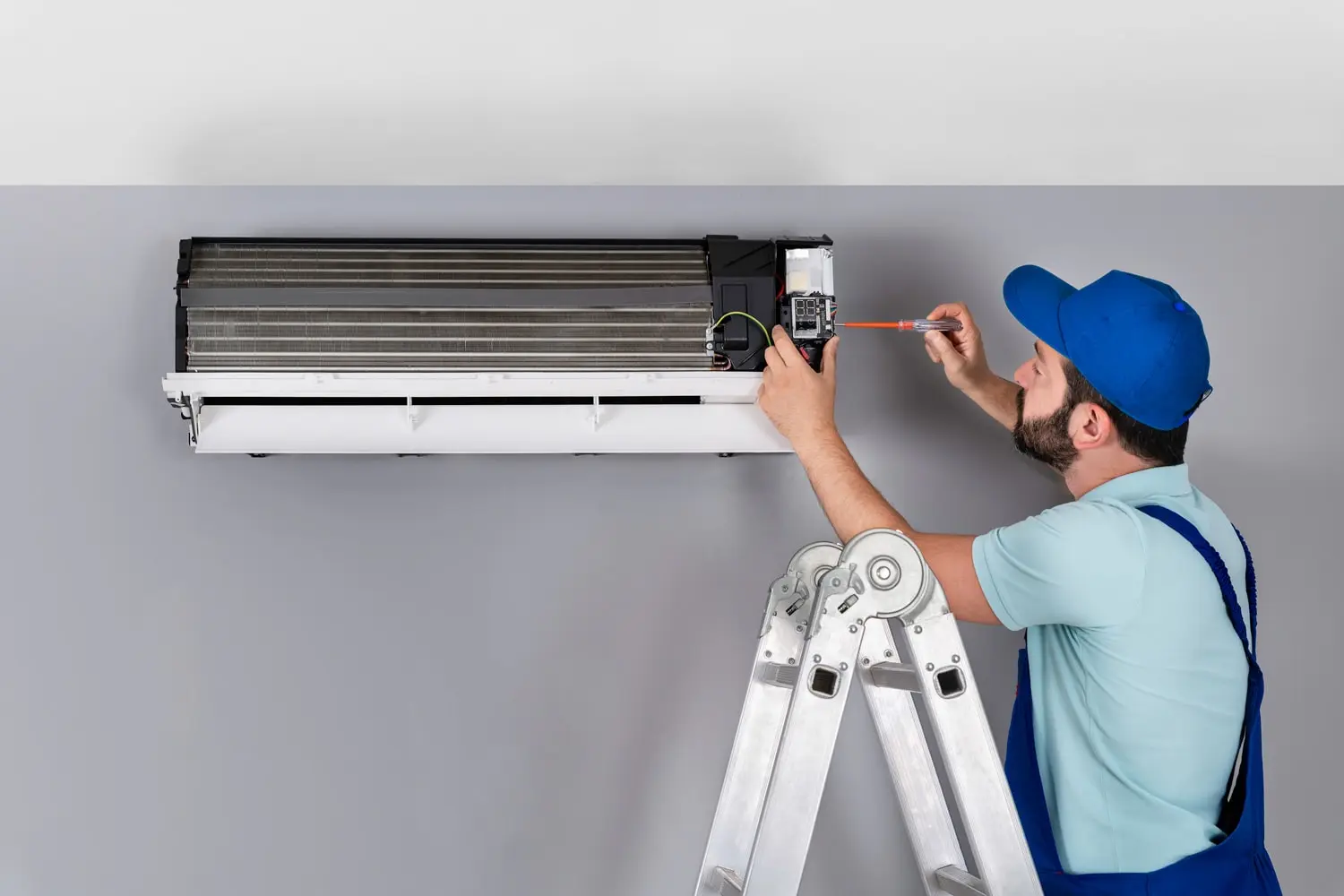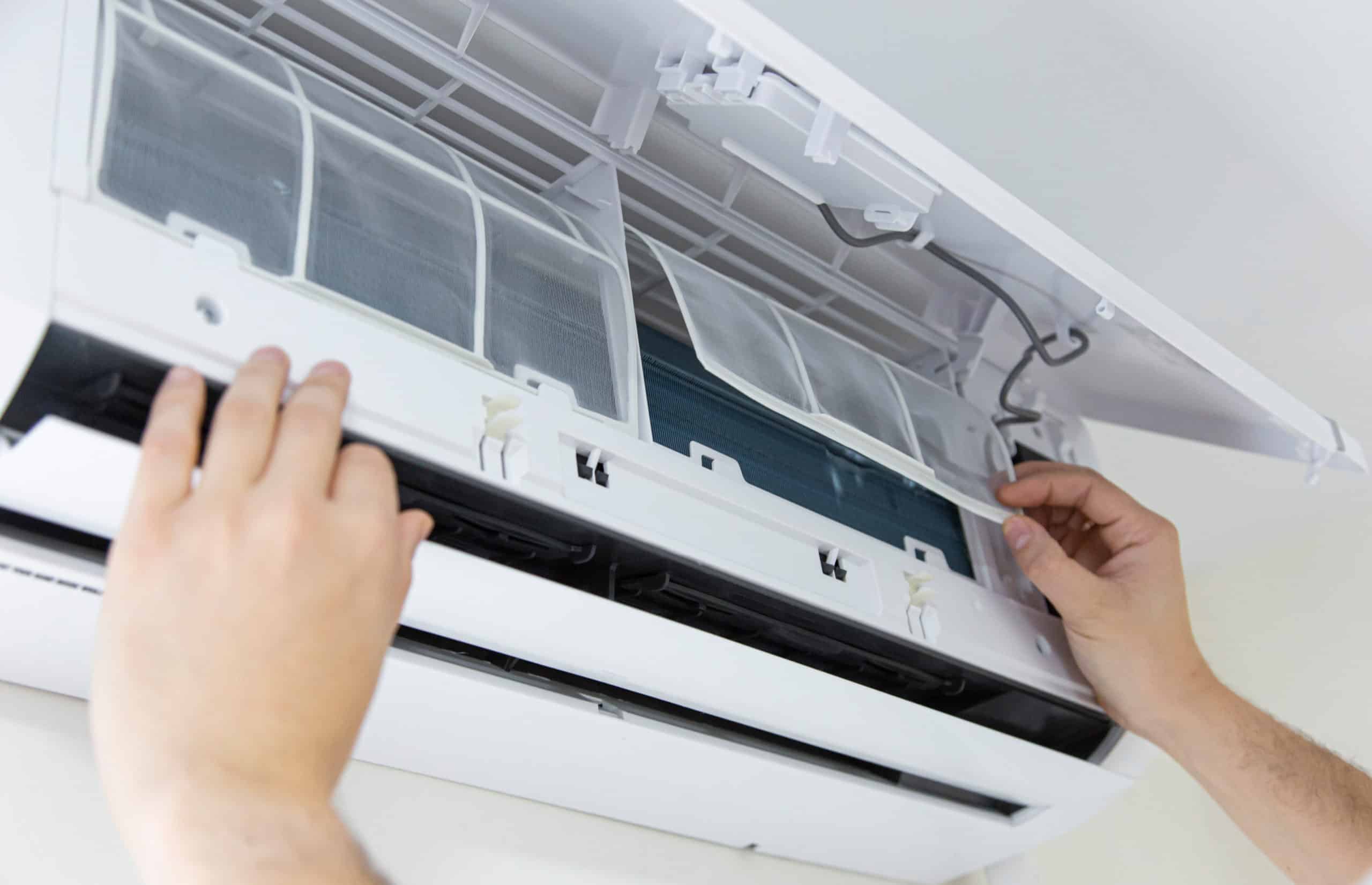3 Simple Techniques For Repair Air Conditioner Near Me
3 Simple Techniques For Repair Air Conditioner Near Me
Blog Article
The Greatest Guide To Ac Air Conditioner Repair
Air Conditioner Repair Near Me: Professional Cooling System Remediation Ensures Your Home Stays Comfy Throughout The Year
Kinds Of Air Conditioner Systems
When tackling AC repair work, understanding the type of cooling system you're handling can conserve time, cash, and irritation. Ever questioned why some systems cool a room faster than others? Or why certain systems seem to break down more frequently? Let's peel back the layers.
Central Air Conditioning
A Biased View of Air Conditioner Repair Near Me
Picture a cool breeze flowing through a whole home, whispering convenience into every corner. Central air systems do precisely that. They use a network of ducts to distribute cooled air, counting on a compressor and condenser outside, paired with an evaporator coil inside. However when this complex beast fails, determining the issue can be like finding a needle in a haystack.
Split Systems

Split systems are a popular option for numerous homes-- part indoor unit, part outside compressor. They use flexibility and effectiveness, however their double nature means repair work can include either component. Have you ever heard a weird sound outside your house only to discover the indoor unit isn't cooling? That's a traditional indication of a split system problem.
Air Conditioner Repair Near Me for Beginners
Window Units
These compact warriors battle summertime heat by fitting comfortably into a window frame. They integrate all elements into a single box. Their simplicity frequently indicates less repair headaches, but neglecting filters or allowing debris accumulation can result in lessened efficiency or breakdowns.
Ductless Mini-Splits
Ac Repair Near Me Things To Know Before You Get This
Ductless systems bypass ductwork entirely, making them ideal for homes without existing ventilation. They're quiet, effective, and remarkably resilient. Yet, when repair work are required, technicians need to be skilled at dealing with refrigerant lines and electrical connections-- no small task.
Quick Referral Table
| Type | Secret Features | Common Repair Work Issues |
|---|---|---|
| Central air conditioning | Ductwork, whole-house cooling | Duct leakages, compressor failure |
| Split System | Indoor & & outside units | Refrigerant leakages, fan motor issues |
| Window Unit | All-in-one, simple setup | Dirty filters, electrical faults |
| Ductless Mini-Split | No ducts, zoned cooling | Line leaks, sensor breakdowns |
See This Report about Ac Air Conditioner Repair
Deciphering one of the most Regular A/c Predicaments
Have you ever wondered why your air conditioning system suddenly stops cooling during a sweltering afternoon? One typical culprit is a dirty or stopped up air filter. This tricky bad guy limits airflow, forcing your system to work overtime, which not only decreases effectiveness however can likewise result in early breakdowns. Picture trying to breathe through a scarf soaked in dust-- it's exhausting!
Another frequent hiccup is refrigerant leaks. These invisible leaks don't just reduce cooling power however can likewise harm the compressor, the heart of your air conditioning unit. How often do you examine for unusual hissing sounds or ice formation on the coils? Capturing these indications early can conserve you from costly repairs down the line.
Beyond the Fundamentals: Lesser-Known Issues
The 9-Minute Rule for Ac Fixing
In some cases, the thermostat itself is the troublemaker. Miscalibrated or defective thermostats send combined signals, causing the a/c to cycle erratically. Ever knowledgeable your a/c turning on and off in rapid succession? That's called short biking, a sly effectiveness drainer that can wear components much faster than you 'd expect.
Electrical issues, such as used electrical wiring or a malfunctioning capacitor, might hide beneath the surface area. Repair Air Conditioner Near Me. These typically manifest as AC units failing to start or all of a sudden closing down. An expert eye understands to check these components with accuracy tools, something a casual glance won't reveal
Expert Tips for Diagnosing Common Air Conditioning Issues
Some Ideas on Air Conditioner Repair Near Me You Need To Know
- Check and replace air filters regularly-- every 1 to 3 months depending on usage and environment.
- Listen for uncommon noises like rattling or buzzing that might indicate loose parts or electrical faults.
- Examine the outside system for debris or clogs that impede airflow and trigger overheating.
- Search for frost buildup on evaporator coils, a tip towards refrigerant problems or airflow constraints.
- Test the thermostat settings and recalibrate if the temperature readings feel off.
Quick Recommendation Table: Manifestation & & Probable Causes

| Symptom | Probable Cause | Expert Tip |
|---|---|---|
| Warm air blowing | Low refrigerant or dirty coils | Clean coils and inspect for leaks right away |
| Brief cycling | Thermostat concerns or oversized unit | Change thermostat settings and consult sizing standards |
| Unit will not begin | Electrical faults or capacitor failure | Test wiring and change capacitors as required |
| Water leakage | Clogged drain line or frozen evaporator | Clear drain lines and examine for coil icing |
DIY Air Conditioning Maintenance Tips
Some Ideas on Repair Air Conditioner Near Me You Should Know
Ever observed your air conditioning system sputtering like an old engine on a hot summer day? Overlooking subtle indications often suggests more than just a sweaty afternoon-- it's a start to unexpected AC repair work costs. What if you could catch those whispers before they turn into wails? Routine DIY maintenance can be your first line of defense.
Basic Actions to Keep Your Air Conditioner Running Efficiently
Indicators on Air Conditioning Repair You Should Know
- Tidy or Change Filters: A clogged filter is like attempting to breathe through a scarf. Every 1-3 months, examine and swap out your filters. It enhances airflow and efficiency, avoiding compressor pressure.
- Examine the Condenser Coils: Dust and debris function as unnoticeable blankets smothering your system's cooling power. Carefully brush or vacuum the coils, however avoid harsh chemicals that might wear down the metal.
- Check the Drain Line: When was the last time you glimpsed at your drain pan? A blocked drain can cause water leaks and foster mold development. Flushing it with a vinegar option month-to-month keeps the circulation clear.
- Seal and Insulate: Are your ductworks whispering leakages? Sealing spaces with mastic or foil tape improves effectiveness and cuts down on irregular cooling.
Pro Tips Beyond the Fundamentals
- Step your system's voltage to catch subtle electrical wear before it triggers big problems.
- Listen for unusual hums or rattles-- these acoustic breadcrumbs frequently indicate loose parts or stopping working motors.
- Keep outside units shaded but guarantee a minimum of 2 feet of clearance around them for optimum airflow.
Ask yourself: Are you hearing your air conditioning's quiet SOS or simply awaiting it to shout? Requiring time for DO IT YOURSELF AC maintenance transforms reactive repair into proactive care, conserving sweat, tension, and yes, money.
The Of Repair Air Conditioner Near Me
Why Proficiency in A/c Repair Matters
Envision this: your air conditioner unit sputters and groans throughout a scorching get more info afternoon, leaving you sweltering inside your home. Would you rely on a beginner fumbling with fragile elements, or would you seek the reassurance of a professional a/c service technician!.?.!? The complexities of contemporary cooling systems demand accuracy and experience. A minor mistake can escalate a small malfunction into a pricey catastrophe.
Fix Air Conditioner Can Be Fun For Anyone
Unseen Intricacies Behind the Cool Breeze
Many ignore the layers hidden underneath the streamlined exterior of an AC unit - AC Repair. From refrigerant leakages that quietly drain pipes performance to malfunctioning thermostats that misread temperature levels, these problems require more than a basic toolkit. Professionals have a keen eye for detecting issues that average property owners overlook
Essential Tips for Choosing the Right Service Technician
What Does Fix Air Conditioner Do?
- Accreditation and Training: Confirm qualifications; a service technician trained in the most current a/c innovations is indispensable.
- Experience with Particular Systems: Not all AC systems are produced equivalent; find someone acquainted with your design's peculiarities.
- Diagnostic Approach: Experienced professionals use sophisticated tools-- like electronic leakage detectors and thermal imaging-- to identify surprise faults.
What to Get out of a Pro's Diagnostic Process
| Action | Purpose | Specialist Insight |
|---|---|---|
| Visual Inspection | Identify obvious wear or damage | Look for corrosion or uncommon sounds-- a dead giveaway often disregarded |
| Pressure Checking | Find refrigerant leaks | Subtle pressure drops can hint at micro leaks invisible to the naked eye |
| Electrical Checking | Make sure circuit stability | Loose connections can mimic severe mechanical failures |
Air Conditioning Repair Near Me Fundamentals Explained
Why Do It Yourself Typically Falls Short
Tempting as it is to play with your a/c unit, do it yourself repairs regularly miss the source. For example, completing refrigerant might temporarily cool your area but neglects leaks that get worse over time. Professional service technicians don't just spot symptoms; they hunt down the underlying mechanical and electrical faults that sap efficiency.
Top Guidelines Of Air Conditioning Repair Near Me
Questions to Ask Before Employing
- What diagnostic tools do you use to recognize issues?
- Can you explain the repair work procedure and anticipated outcomes?
- Are you knowledgeable about the refrigerants suitable with my unit?
- Do you follow security protocols for dealing with electrical parts?